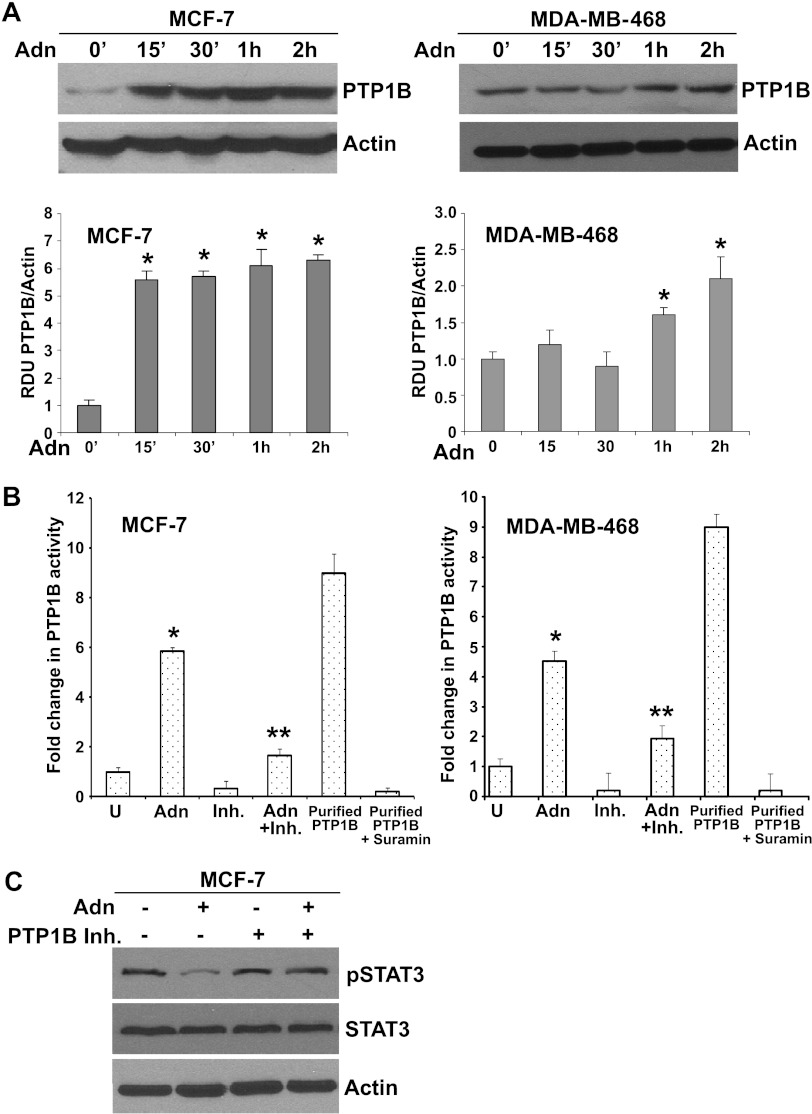Figure 4.
Adiponectin increases PTP1B expression in breast cancer cells. (A) Breast cancer cells MCF7 and MDA-MB-468 were treated with 10 µg/ml adiponectin (Adn) for various intervals of time as indicated. Untreated cells are denoted as 0. Total protein was isolated and equal amounts of proteins were resolved by SDS-PAGE and subjected to immunoblot analysis using specific antibodies for PTP1B. The blots are representative of multiple independent experiments. Adiponectin treatment increased PTP1B expression in MCF7 and MDA-MB-468 breast cancer cells. The histogram is the mean of densitometric analysis showing relative density units (RDUs) of the Western blot signals for PTP1B normalized to actin in multiple experiments. *P < .005, compared with untreated controls. (B) Breast cancer cells were treated with 10 µg/ml adiponectin (Adn) and 50 µM of PR-129 (Inh.) alone or in combination (Adn + Inh.). Purified lysates were subjected to PTP1B activity assay. Purified PTP1B and Suramin were used as positive and negative controls, respectively. Adiponectin treatment increases PTP1B activity. (C) MCF7 cells were treated with 10 µg/ml adiponectin (Adn) and 50 µM of PR-129 (Inh.) alone or in combination (Adn + Inh.). Total protein was isolated and equal amounts of proteins were resolved by SDS-PAGE and subjected to immunoblot analysis using specific antibodies for pStat3 and Stat3. The blots are representative of multiple independent experiments. Actin was used as control. Adiponectin decreased pStat3, whereas PTP1B inhibitor abrogates adiponectin's effect.

